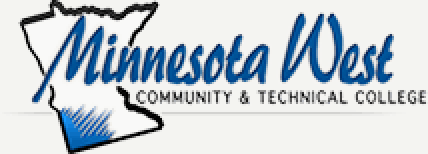ADC 2100 Drug and Alcohol Practicum
ADC 2100: Drug and Alcohol Practicum
Description
Drug and Alcohol Practicum provides supervised work experience for students in the LADC certificate in two or more levels of care. Students and supervisors design the experiences to meet students’ educational and career goals. Students must be supervised by a currently licensed LADC for 440 hours (a total of 880 hours to graduate). Must be taken twice to meet the graduation requirements.
Credits
3
Prerequisite
To be admitted to internships, students must have an overall GPA of 2.00 (“C”) in certificate courses; complete a formal application process; and be approved following recommendations from the LADC course instructors.
Corequisite
None
Topics to be Covered
1. Assessment and evaluation tools and techniques to identify substance use disorders and co-occurring disorders.
2. Ethical practices of documentation, informed consent, statutes 245F and 245G, and professional boundaries in addiction.
3. Fundamental issues (understanding addiction, treatment knowledge, application to practice, professional readiness) encountered in the field of substance use, abuse, and dependency to include the effectiveness of multidisciplinary team staffing, and Insurance Utilization Reviews.
4. Dimensions of the 12 core functions of alcohol and drug counseling, including culturally competent and professional ethical practice.
5. Professional practice issues (internship, ethics, professionalism, record keeping, cultural diversity, counseling theories and practice, diagnostic criteria) in the field of substance use, abuse, and dependency.
6. Evidence-based treatment plans and Treatment Plan Reviews
7. Develop Psycho-educational Groups for future facilitation
8. Work in Medical Services and Admissions to gain a grasp of the Comprehensive Assessment Process
9. Cross Training understanding of Outpatient Services, and Residential gambling Services
10. Understanding of Case Management and Continuum of Care
11. Ongoing Clinical Supervision through cohort group and on an individual basis
Learning Outcomes
1. Understanding of the biological, psychological, and social aspects of addiction and how it impacts individuals, families, and communities.
2. Conduct thorough assessments of clients utilizing appropriate tools and techniques to identify substance use disorders and co-occurring disorders.
3. Develop, implement, and evaluate individualized treatment plans that reflect clients’ needs and incorporate evidence-based practices.
4. Apply various therapeutic interventions and counseling techniques suited for working with substance use disorders and potentially co-occurring disorders.
5. Apply cultural competence, sensitivity, and the socio-economic factors influencing addiction treatment and recovery processes.
6. Adhere to the ethical practices of documentation, informed consent, statutes 245F and 245G, and professional boundaries in addiction.
7. Demonstrate a basic understanding of data and analytics as they relate to the field of addiction.
8. Demonstrate an understanding of case management, continuum of care, client advocacy, and effective collaboration and communication with clients, families, and the multidisciplinary team supporting the recovery process.
9. Gain an appreciation of the needs for professional development.
Credit Details
Lecture: 0
Lab: 0
OJT: 3
MnTC Goal Area(s): None
